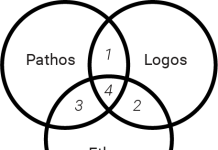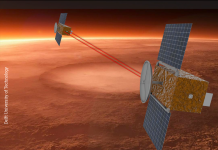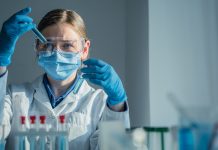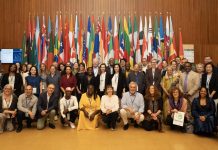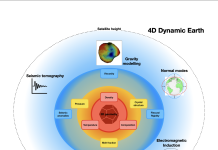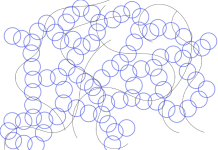Open Access Government produces compelling and informative news, publications, eBooks, and academic research articles for the public and private sector looking at health, diseases & conditions, workplace, research & innovation, digital transformation, government policy, environment, agriculture, energy, transport and more.
Home 2025
Archives
Science Platform Sustainability 2030: Bridging science and policy for sustainable transformation
Julian Trutz Müller, a Scientific Officer at GERICS/wpn2030, discusses the importance of bridging science and policy for sustainable transformation, using the case study of the Science Platform Sustainability 2030 (wpn2030).
Overcoming barriers for efficient dialogue between research and practice
As climate and biodiversity crises grow more complex, productive exchange between researchers, practitioners and policymakers becomes crucial. This article outlines the hurdles to efficient dialogue and the approaches that can help build trust, shared understanding and real-world impact.
The dome marketplace: Building a trusted, unified cloud & edge ecosystem for Europe
Digital sovereignty remains a strategic priority for Europe, aiming to strengthen its digital resilience and empower European companies to compete globally in a trusted and transparent environment.
Wellbalance elevates coaching through the science of personalized wellbeing
WellBalance’s “Wellbeing Balance and Lived-Experiences Model of Positive Wellbeing”, developed by Harvard-trained scientist Troy W. Norris, is the first scientifically validated experiential model of wellbeing.
Collapse and persistence before 1713: Rethinking Khoekhoen political economy at the early Cape
Erik Green examines the complex interactions between the Khoekhoen and early European settlers, challenging conventional narratives of indigenous passivity and highlighting the resilience and agency of Khoe societies in the face of colonial pressures.
The collective organization of science denial: Toward a framework for collective response
The recent volume “Organized Science Denial. An Action Plan for Solutions” edited by Elena Bruni and Lianne M. Lefsrud, hosts the voices of scholars in organization theory to reflect about the collective dynamics of denial and its implications in this currently complex world.
MaQuIS: Pioneering quantum space exploration to unlock Mars’ interior and atmosphere
B.C. (Bart) Root, an Assistant Professor at Delft University of Technology, discusses pioneering efforts in quantum space exploration aimed at unlocking the secrets of Mars’ interior and atmosphere.
Making Europe the epicenter of global scientific talent
Cecilia Van Cauwenberghe explores investment in scientific minds, aiming to build Europe’s future by reflecting on Commissioner Zaharieva’s vision for research and innovation that seeks to establish Europe as the epicenter of global scientific talent.
How U.S. research and innovation are reshaping the global energy future
Cecilia Van Cauwenberghe discusses how U.S. research and innovation are transforming the global energy landscape, beginning with comments on energy innovation necessity.
Unlocking private financing for deep energy renovation
Guillaume Lorentz, Head of Bankable Sustainable Solutions at the Sustainable Finance Observatory, explores FiRéno+, a project under the LIFE 2021-2027 programme funded by the EU to unlock private financing for deep energy renovation.
Gallium oxide HV switches to turbo charge the AI data center
Prof. Singisetti at the University at Buffalo explains why gallium oxide semiconductor could be a key player in the AI transformation of society.
EPIC-X: Excelling deep tech through place-based innovation and connected ecosystems for women-led startups
EPIC-X envisions a European effort that unites diverse stakeholders to create an inclusive and equitable deep tech ecosystem, empowering women-led startups, fostering cross-border collaboration, and dismantling systemic barriers to innovation across Europe.
The prepared code: A values-driven approach to pandemic preparedness
Corinna Pannofino, Research Communications Manager at Trilateral Research, introduces a new framework for ethical research that was launched to prepare for the next pandemic, restoring public trust and ensuring scientific integrity.
Bridging big science and industry quality control for laser manufacturing processes
Discover how researchers are making the PETRA III Swedish Materials Science beamline’s X-rays accessible for tracking the evolution of material properties during laser processing.
4D dynamic earth: Advancing our understanding of the planet’s interior
B.C. (Bart) Root, an Assistant Professor at Delft University of Technology, discusses the 4D Dynamic Earth: Phase 1 project, which is enhancing our understanding of the planet’s interior.
Nanobubble transformation of water treatment
Professor Niall English discusses the challenges and advancements in water treatment, highlighting AquaB Nanobubble Innovations’ breakthrough nanobubble-generation technology, which offers a more sustainable solution for water treatment across various sectors.
Rethinking silicone coatings: Using polymer architecture to eliminate VOCs
Ring polysiloxanes offer a promising route to VOC-free silicone coatings without compromising performance; Anne Ladegaard Skov and Cody Brian Gale from the Technical University of Denmark explain.
Online and on-demand teaching materials for science education
Masatsugu Taneda, an Associate Professor at Osaka Kyoiku University, focuses on science education, in particular, the development of online and on-demand teaching materials, including chemistry.
The role of research and knowledge creation in decolonization
Geraldine Balzer from the University of Saskatchewan emphasizes the importance of reciprocity and relationality in research with Indigenous communities, advocating for collaborative knowledge generation that respects community values and involves extended engagement.
Laser light absorption on molten metal
Light absorption at high temperatures is highly impacted by interband absorption in addition to intraband absorption.






